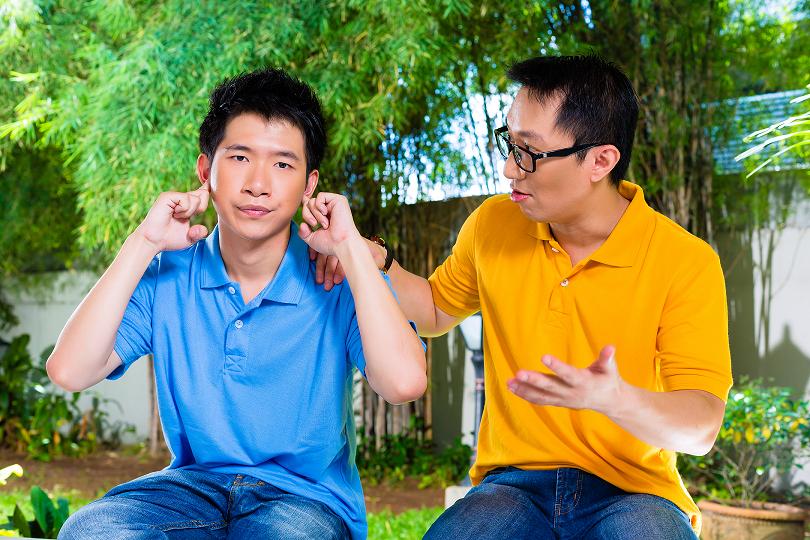
Problem Solving With Your Child
By Carolyn Knarr, MSW, LCSW, Director of Children’s Therapeutic Services
The number one complaint I hear from most children is that their parents yell too much. Being a parent myself, I know why parents yell: their children don’t listen, they don’t handle their responsibilities, they don’t respond unless you raise your voice, and they can be quite irritating! Talk to your child about the fact that they don’t respond unless you yell (and even then, just sometimes). Tell them you don’t want to yell. Ask them what they suggest so that you don’t have to yell.
Below is an example of a conversation you might have:
Parent: “Kelly, I notice that I have been yelling at you a lot.”
Child: “Yeah, all the time!” (Don’t be tempted to say something like, “Because you don’t listen!”)
Parent: “So, I was wondering if you have any ideas for changing things so I don’t have to yell.”
Child: “That’s easy! Just stop yelling.”
Parent: That would be easy. What should I do when I ask you to do something and you don’t do it?”
Child: “Just give me time to respond.”
Parent: “How much time do you think I should give you?”
Child: “Well, it depends on what I am doing. If I’m busy, then a lot.”
Parent: “That would work for you, but that doesn’t work for me. When I ask you to do something, I am expecting you to do it immediately.”
Child: “But I don’t think that’s fair!”
Parent: “Okay, so what if I tell you when I want it done. I could say something like, ‘I need you to take the trash out by dinnertime,’ or, ‘ I need you to come to dinner now.”
Child: “Yeah, I guess that would work.”
Parent: “So, even if you don’t respond in the time I ask you, I am not going to yell. I don’t like to yell and you don’t like to listen to me yell. So, what do you suggest I do if you don’t do what you need to do?”
Child: “Hmm, I’m not sure.”
Parent: “I think I’m either going to have to yell or have consequences.”
Child: “What kind of consequences?”
Parent: “I’m not sure. Let’s figure that out.”
At this point, the parent and child can write out situations in which the child does not listen, and come up with consequences together. The child will feel listened to and have a part in making changes. An example of a consequence might be that, if the child does not take the trash out by the given time, another family member takes it out and the child must pay them for doing their work. If the child does not come to dinner when called, the child must do homework while everyone else is eating, and will only be allowed to eat when the rest of the family is finished.
This is just one scenario, but Agape’s Love and Logic parenting group has many ideas for parents. Check for details about the group on our website (click here).
 About the Author:
About the Author:
Carolyn Knarr earned her Master’s Degree from Washington University, and has been counseling for over 20 years. She is a member of the National Association of Social Workers, and is a licensed clinical social worker.
Carolyn has a strong background in working with children and adolescents with ADHD, attachment disorder, trauma, bipolar disorder, and Asperger’s. She works closely with their families to help them with the emotional and behavioral aspects of these disorders. She utilizes play therapy, family therapy, and cognitive behavioral therapy, and is qualified to do psychological assessments with children. Carolyn also sees adult clients, couples, and families.
Through counseling, Carolyn helps her clients look at past and present relationship issues, communication patterns, and the potential for healing and growth.





